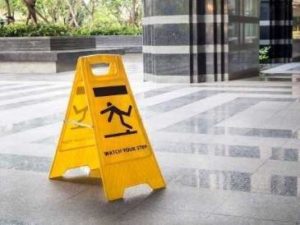 Personal injury attorneys handle many different types of accidents. Slip and fall cases are among the most common. This probably wouldn’t surprise many people, as it can seem like there’s an ad for a slip and fall attorney during just about every TV and radio commercial break. But while slip and fall cases are common, simply slipping and falling somewhere doesn’t entitle you to sue. In Virginia and other states, you only have grounds for a lawsuit when your slip and fall accident is the result of negligence on the part of the property owner or manager. If you have been hurt but are not sure whether you should take action for a slip and fall accident, ask yourself, “Could the property owner have prevented this?” If so, you may have a case.
Personal injury attorneys handle many different types of accidents. Slip and fall cases are among the most common. This probably wouldn’t surprise many people, as it can seem like there’s an ad for a slip and fall attorney during just about every TV and radio commercial break. But while slip and fall cases are common, simply slipping and falling somewhere doesn’t entitle you to sue. In Virginia and other states, you only have grounds for a lawsuit when your slip and fall accident is the result of negligence on the part of the property owner or manager. If you have been hurt but are not sure whether you should take action for a slip and fall accident, ask yourself, “Could the property owner have prevented this?” If so, you may have a case.
MAINTAINING SAFE CONDITIONS
Property owners are obligated by law to make a reasonable effort to maintain safe conditions on their property. At the same time, however, every individual is responsible for maintaining an awareness of his or her surroundings and avoiding potentially dangerous situations that are open and obvious. These concurrent obligations can make it difficult to prove negligence in a slip and fall case, so attorneys look to verify the following conditions.
- A reasonable property owner or manager would have been aware of the hazard and taken steps to repair it, but the property owner or manager in the case failed to do so
- The owner or manager knew about the dangerous condition, but failed to take action to correct the hazard or took action that was ineffective
- The property owner or manager caused the dangerous and hazardous condition themselves
While attorneys look for additional information to prove negligence in a slip and fall case, these three points form the foundation of the case. If you’re ready to take action against a negligent property owner or manager, or you’re not certain whether you have a case, contact one of Virginia’s preeminent personal injury firms at NovaLegalGroup to schedule your free consultation. Remember, for any personal injury case, we charge a contingency fee, which means you never pay any fee unless we obtain a favorable settlement or judgment for you.*
*You are still responsible for any incurred expenses.
